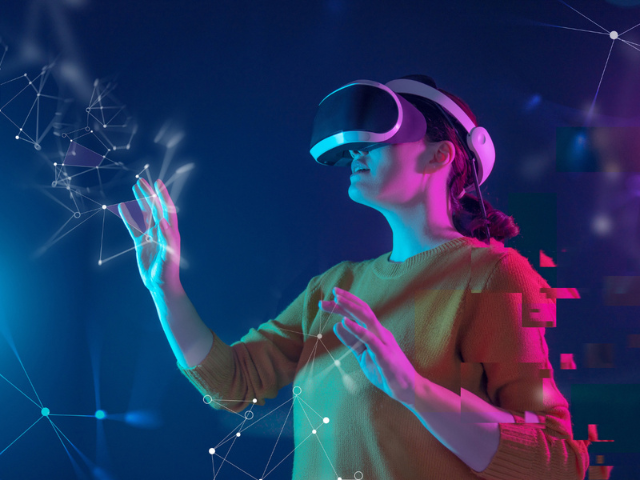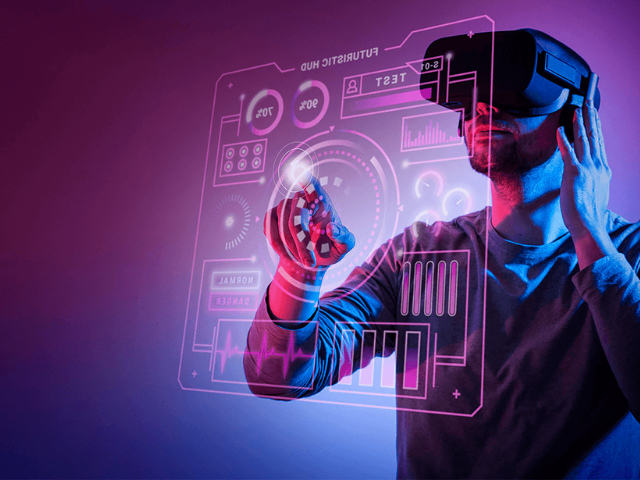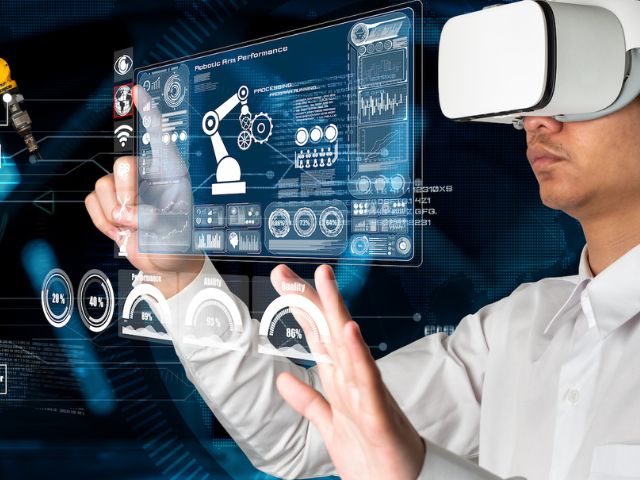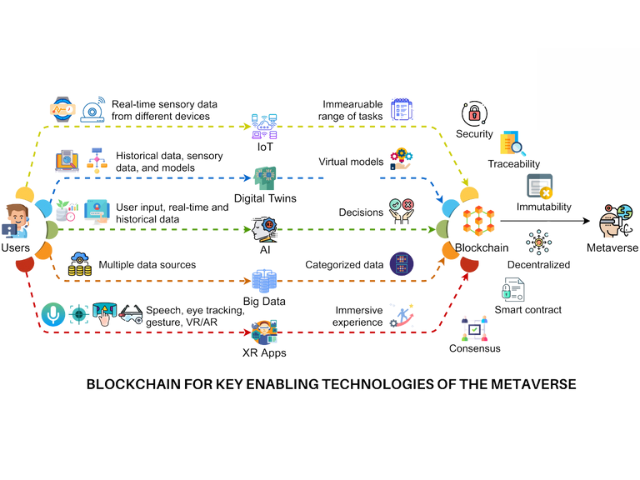Unveiling the Metaverse Platforms: A Critical Analysis of the Next Frontier in Virtual Reality
Delve into the world of virtual reality as we dissect the emerging metaverse platforms in this comprehensive and critical analysis. From exploring the technological advancements to understanding the potential impact on various industries, this article offers a well-rounded perspective for general readers seeking to gain a deep understanding of the next frontier in virtual reality.
Understanding the Metaverse Platforms
The concept of the metaverse has gained significant attention in recent years, especially with the advancements in virtual reality (VR), augmented reality (AR), and blockchain technology. Understanding the metaverse requires delving into the evolution of virtual reality and the key features of metaverse platforms.
Definition of the Metaverse
The metaverse can be defined as a collective virtual shared space, created by the convergence of virtually enhanced physical reality and physically persistent virtual reality. It is a fully immersive digital environment where individuals can interact with each other and digital assets, such as virtual real estate, in real time.

Evolution of Virtual Reality to the Metaverse
Virtual reality has evolved from being a technology primarily used for gaming and entertainment to a more comprehensive concept known as the metaverse. The metaverse goes beyond the boundaries of traditional VR, incorporating elements of social interaction, commerce, and digital ownership.

Key Features of Metaverse Platforms
Metaverse platforms offer a range of key features, including the ability to create and interact with digital assets, socialize with others in virtual environments, and engage in various activities such as gaming, education, and commerce. These platforms often leverage advanced technologies such as blockchain and artificial intelligence to enhance user experiences.
Technological Advancements in Metaverse Platforms
The technological advancements in metaverse platforms play a crucial role in shaping the future of virtual reality and digital interaction.
Virtual Reality (VR) and Augmented Reality (AR) Integration
Metaverse platforms are integrating VR and AR technologies to create more immersive and interactive experiences for users. VR provides a fully immersive digital environment, while AR overlays digital information onto the physical world, creating a mixed reality experience within the metaverse.

Blockchain Technology and Its Role in the Metaverse
Blockchain technology is integral to the metaverse, as it enables secure and transparent transactions, digital asset ownership, and decentralized governance. Through blockchain, users can have true ownership of their digital assets within the metaverse, including virtual real estate and unique digital items.

Artificial Intelligence (AI) in Metaverse Platforms
AI plays a significant role in enhancing the functionality of metaverse platforms. AI and machine learning tools are used to create realistic simulations, personalize user experiences, and facilitate interactions within the metaverse. Additionally, AI data collection companies are leveraging the metaverse for advertising, social media marketing, and targeted user engagement.
Impact of Metaverse Platforms on Industries
The emergence of metaverse platforms has the potential to significantly impact various industries, including entertainment, education, real estate, and healthcare.
Entertainment and Gaming
Metaverse platforms are revolutionizing the entertainment and gaming industry by offering immersive and interactive experiences for users. Virtual concerts, live events, and gaming tournaments within the metaverse are attracting a growing active user base, creating additional revenue streams for content creators and developers.
Education and Training
In the field of education and training, metaverse platforms are being utilized to create virtual classrooms, interactive simulations, and hands-on training experiences. This innovative approach to learning has the potential to enhance engagement and knowledge retention among students and professionals.
Real Estate and Architecture
The concept of virtual real estate within the metaverse is reshaping the real estate and architecture industries. Virtual property ownership, architectural visualization, and virtual tours are becoming increasingly popular, offering new opportunities for property developers and architects to showcase their designs and engage with potential buyers.
Healthcare and Telemedicine
Metaverse platforms are also making an impact on healthcare and telemedicine by enabling virtual medical consultations, remote patient monitoring, and medical training simulations. This has the potential to improve access to healthcare services and medical education, especially in underserved areas.
Challenges and Concerns in the Metaverse
While the metaverse presents exciting opportunities, it also brings forth several challenges and concerns that need to be addressed.
Privacy and Security Issues
Privacy and security in the metaverse are major concerns, as users interact and transact within a digital environment. Safeguarding personal data, preventing identity theft, and ensuring secure transactions are critical aspects that require attention.
Digital Divide and Accessibility
The digital divide, which refers to the gap between those who have access to digital technologies and those who do not, is a significant concern in the context of the metaverse. Ensuring accessibility for all individuals, regardless of their socioeconomic status or geographic location, is essential for the inclusive development of the metaverse.
Ethical Considerations in the Metaverse
Ethical considerations, such as the potential for addiction, virtual harassment, and the impact of virtual experiences on mental health, need to be carefully examined as the metaverse continues to evolve. Establishing ethical guidelines and promoting responsible use of the metaverse is crucial for its sustainable development.
The Future of Metaverse Platforms
Looking ahead, the future of metaverse platforms holds immense potential for social interaction, collaboration, and integration with everyday life.
Potential for Social Interaction and Collaboration
Metaverse platforms have the potential to become virtual hubs for social interaction, enabling individuals from around the world to connect, collaborate, and engage in shared experiences. This could redefine the way people communicate and interact in the digital age.
Integration with Everyday Life
As metaverse platforms continue to evolve, they may seamlessly integrate with everyday life, offering new opportunities for work, leisure, and personal expression. From virtual offices to digital art galleries, the metaverse could become an integral part of daily routines.
Predictions for the Growth and Development of the Metaverse
The growth and development of the metaverse are expected to continue at a rapid pace, driven by advancements in technology, increasing active users, and the exploration of new revenue streams. As the metaverse expands, it is likely to influence a wide range of industries and societal interactions, shaping the future of virtual reality and digital experiences.
In conclusion, the emergence of metaverse platforms represents a significant advancement in the realm of virtual reality, offering immersive experiences, digital ownership, and new avenues for social interaction and commerce. However, as the metaverse continues to evolve, it is essential to address the associated challenges and ethical considerations while harnessing its potential for positive impact across various industries and everyday life.
10 Metaverse Platforms to Watch in 2024
Here’s a list of top metaverse platforms to keep an eye on in 2024, featuring both consumer-focused and enterprise-oriented platforms, listed alphabetically:
-
Decentraland
As its name suggests, Decentraland positions itself as a fully decentralized metaverse, owned and governed by its users. -
Fortnite
Launched by Epic Games in 2017, the popular Battle Royale game continues to expand with new virtual spaces, events, and even live concerts. -
Metahero
A blockchain-based platform from Pixel Vault, Metahero brings advanced 3D scanning and modeling technology to create digital avatars for a variety of applications, including gaming, e-commerce, and healthcare. -
Meta Horizon Workrooms
Designed for virtual collaboration, Meta Horizon Workrooms allows users to work together, share presentations, and brainstorm ideas, either with a Meta Quest headset or online. -
Microsoft Mesh
The successor to Microsoft’s Altspace platform, Mesh focuses on enterprise applications, leveraging Microsoft Teams to make online meetings and events more immersive. -
Mozilla Hubs
Powered by Mozilla, Hubs lets users meet and collaborate in private 3D virtual spaces, using avatars to represent themselves and share content. -
Nvidia Omniverse
Built using Pixar’s Universal Scene Description (OpenUSD) and Nvidia’s technologies, Omniverse allows users to create generative AI-powered 3D tools, apps, and services. -
Roblox
A 3D gaming platform since 2006, Roblox also includes social media features and lets users create avatars and worlds, with developers using its tools to build their own games. -
Rooom
Rooom enables users to create and share immersive digital experiences in 3D, augmented reality, and digital reality, with applications in marketing, sales, education, and events. -
Sandbox
Built on the Ethereum blockchain and represented by NFTs, Sandbox allows players to buy, sell, and create digital assets, with tools for creating 3D games and experiences.
